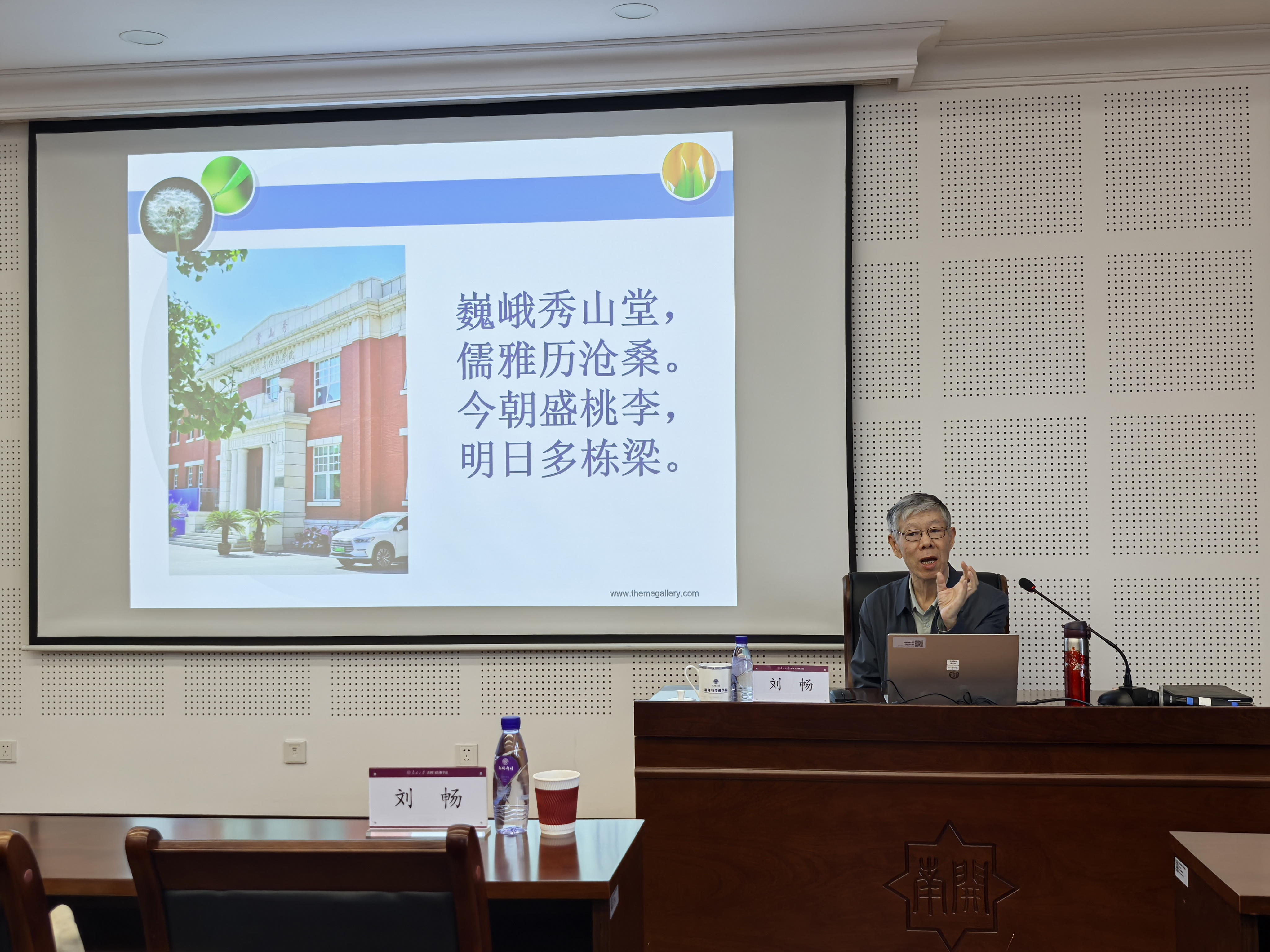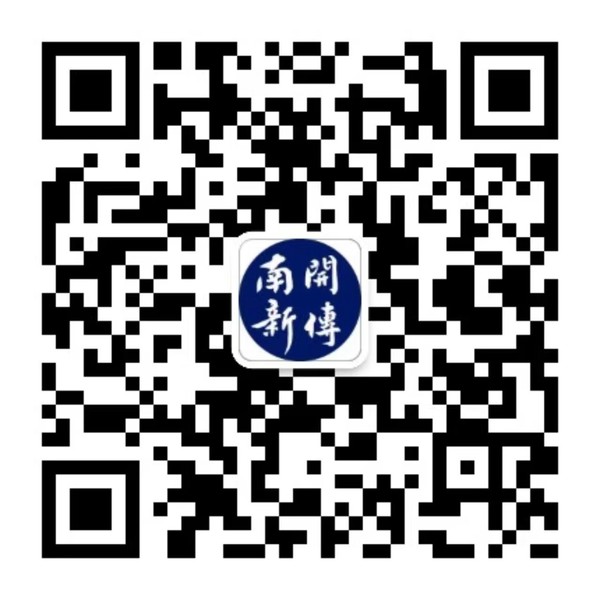To further support mentorship in teaching and research, the School of Journalism and Communication invited retired Professor Liu Chang to deliver a lecture on May 9. Centering on the topic How Thought Employs Rhetoric: The Theoretical Path of Intertextual Analysis, Professor Liu led an academic discussion that bridged Eastern and Western perspectives.

Professor Liu explicitly introduced the original concept of thought rhetoric, stating that it constitutes a research path grounded not only in the academic context of the rhetoric turn in both Chinese and Western scholarship, but also in a deep awareness of Chinese problems. The lecture unveiled the rhetorical wisdom embedded in the process of ideological construction and highlighted the academic potential within this field.
Regarding the theoretical construction, Professor Liu defines thought rhetoric as the rhetorical mechanisms that permeates cognitive activities, emphasizing its cognitive characteristics as implicit rhetoric. By facilitating a cross-temporal dialogue between the concept of straightforward words that seem paradoxical in the Tao Te Ching and the term intertextuality, he reveals common patterns of intellectual breakthroughs and rhetorical strategies across different civilizations. He argued that major intellectual breakthroughs are often accompanied by the creative application of rhetorical strategies, and that this dialectical process, in which propositions (intellectual innovation) and methods (rhetorical strategies) mutually influence each other as cause and effect, constitutes the core mechanism of thought rhetoric theory.
Focusing on academic history, Professor Liu examined the rhetoric turn of Chen Wangdao, Wang Xijie, and Tan Xuechun against the backdrop of disciplinary paradigm shifts, thereby outlining the evolution of Chinese rhetoric from sentence analysis toward the development of rhetorical philosophy. Furthermore, by tracing the formative history of intertextuality, he revealed a cross-civilizational landscape of thought rhetoric. From Bakhtin's dialogism to Kristeva's coining of intertextuality, and from Freud's psychoanalysis to Zhang Dongsun's Yin-Yang dialectics, the trajectory of intertextuality was mapped out. Through these detailed case studies in the thought rhetoric, he demonstrated that academic innovation is, in essence, a rhetorical practice of meaning production.
Methodologically, Professor Liu proposed a dual mission for the study of thought rhetoric: on one hand, to establish independent research categories, as traditional rhetoric did by constructing a system of rhetorical devices; and on the other hand, to develop analytical tools grounded in practical application. He took naming integration as an example to demonstrate how to capture the rhetorical discourse games inherent in theory production during the processes of conceptual translation and traveling theory.
Finally, Professor Liu situated thought rhetoric within the academic framework of the rhetoric turn, suggesting that it could give rise to three new development areas: decoding the rhetorical genes in Chinese classical literary theory, establishing a rhetorical analysis method for intellectual history research, and developing a rhetorical toolkit for interdisciplinary innovation. The dialectical thinking of zero degree and deviation provides a practical analytical framework for contemporary scholarly innovation. This combination of metaphysical thought and pragmatic tools constitutes a key breakthrough through which thought rhetoric theory addresses the challenges posed by the era of the rhetorical turn.
This lecture established an academic framework bridging past and present, introducing faculty and students to the new research paradigm of interpreting thought through rhetoric. Professor Liu's interdisciplinary perspective and mastery of textual analysis demonstrated the innovative spirit of the School of Journalism and Communication, setting a model for young scholars in tackling big questions with precise methods.
During the communication session, faculty and students engaged in discussions on cutting-edge topics such as cognitive rhetorical variations in the digital age and artificial intelligence and rhetorical subjectivity. Young faculty member Wu Yike presented flowers on behalf of the School, paying tribute to this intellectual ferryman who builds a dialogue between classical literary theory and modern communication research.
Accompanied by the School's young faculty members, Professor Liu also visited the newly completed hyper-converged computer center and media convergence laboratory. Upon learning that these facilities have been supporting the School's interdisciplinary practices in digital humanities, Professor Liu remarked, From the computing clusters of the server room to the intelligent communication matrix, this is precisely the future vision of the new liberal arts.
Ma Changhong, Secretary of the School's Party Committee, attended the event, while Associate Professor Ma Ruijie moderated the lecture.
[Scholar Profile]
Liu Chang is a Professor and doctoral supervisor at the School of Journalism and Communication, NKU. His research interests include the intellectual history of classical literature, journalism and communication, the history of ancient political thought, and rhetoric. He has published over 80 papers in journals such as Literary Heritage, Social Science Front, and Nankai Journal. He is also the author of several monographs, including Research on Thoughts of Ancient Chinese Writings, Mind–Ruler Isomorphism: A Prototype Analysis of Ancient Chinese Political Thought, and Restoring Historical Texts and Tracing Intellectual Origins. He has conducted academic visits and studies at Harvard University, the University of Miami, the University of Edinburgh, and the University of Suwon.


